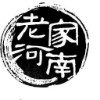
Why Nations Fail:The Origins of Power, Prosperity, and Poverty
¥ 526 九品
仅1件
河南郑州
认证卖家担保交易快速发货售后保障
作者Daron Acemoglu;James Robinson
出版社Crown Business
出版时间2012-03
装帧精装
货号5-A6
上书时间2024-10-08
- 最新上架
商品详情
- 品相描述:九品
图书标准信息
- 作者 Daron Acemoglu;James Robinson
- 出版社 Crown Business
- 出版时间 2012-03
- ISBN 9780307719218
- 装帧 精装
- 开本 其他
- 纸张 其他
- 【内容简介】
-
Review
"'You will have three reasons to love this book. It's about national income differences within the modern world, perhaps the biggest problem facing the world today. It's peppered with fascinating stories that will make you a spellbinder - 【作者简介】
-
About the Author
Daron Acemoglu is the Killian Professor of Economics at MIT. He received the John Bates Clark Medal.
http://econ-www.mit.edu/faculty/acemoglu/
James Robinson is a political scientist and economist and the Florence Professor of Government at Harvard University, and a world-renowned expert on Latin America and Africa.
http://scholar.harvard.edu/jrobinson
They are the authors of Economic Origins of Dictatorship and Democracy, which won numerous prizes (http://book.douban.com/subject/1841848/) - 【目录】
-
Contents
Preface
Why Egyptians filled Tahrir Square to bring down Hosni Mubarak and what it means for our understanding of the causes of prosperity and poverty
1. So Close and Yet So Different
Nogales, Arizona, and Nogales, Sonora, have the same people, culture, and geography. Why is one rich and one poor?
2. Theories That Don't Work
Poor countries are poor not because of their geographies or cultures, or because their leaders do not know which policies will enrich their citizens
3. The Making of Prosperity and Poverty
How prosperity and poverty are determined by the incentives created by institutions, and how politics determines what institutions a nation has
4. Small Differences and Critical Junctures: The Weight of History
How institutions change through political conflict and how the past shapes the present
5. "I've Seen the Future, and It Works": Growth Under Extractive Institutions
What Stalin, King Shyaam, the Neolithic Revolution, and the Maya city-states all had in common and how this explains why China?s current economic growth cannot last
6. Drifting Apart
How institutions evolve over time, often slowly drifting apart
7. The Turning Point
How a political revolution in 1688 changed institutions in England and led to the Industrial Revolution
8. Not on Our Turf: Barriers to Development
Why the politically powerful in many nations opposed the Industrial Revolution
9. Reversing Development
How European colonialism impoverished large parts of the world
10. The Diffusion of Prosperity
How some parts of the world took different paths to prosperity from that of Britain
11. The Virtuous Circle
How institutions that encourage prosperity create positive feedback loops that prevent the efforts by elites to undermine them
12. The Vicious Circle
How institutions that create poverty generate negative feedback loops and endure
13. Why Nations Fail Today
Institutions, institutions, institutions
14. Breaking the Mold
How a few countries changed their economic trajectory by changing their institutions
15. Understanding Prosperity and Poverty
How the world could have been different and how understanding this can explain why most attempts to combat poverty have failed
Acknowledgments
Bibliographical Essay and Sources
References
Index
点击展开
点击收起
— 没有更多了 —













以下为对购买帮助不大的评价